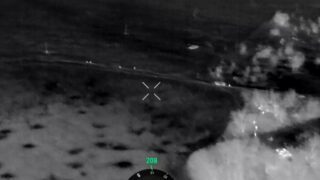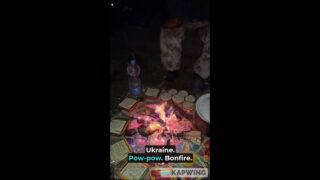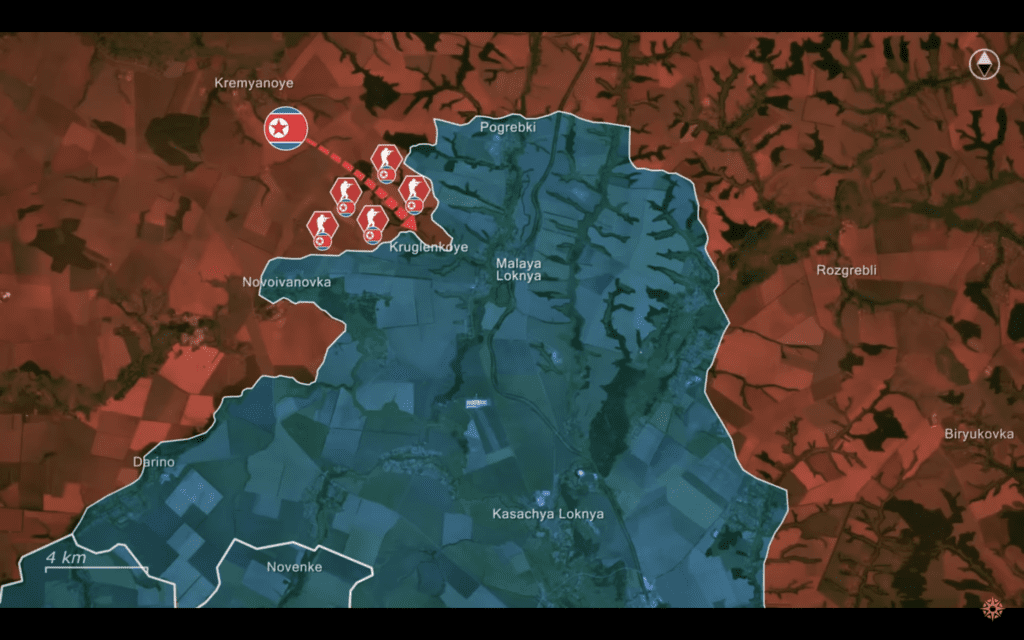
Frontline report: North Korean “human bait” tactic fails catastrophically in Kursk offensive
Today, there are a lot of interesting updates from the Kursk direction, Russia.
Here, in a desperate attempt to break through Ukrainian defenses near Kruglenkoe, North Korean troops resorted to human bait tactics, sending selected soldiers to their death to distract Ukrainian drone operators. However, their poorly executed strategy led to catastrophic losses, leaving the battlefield littered with bodies, and no results to show for it.
Recently, the Russian command decided to re-prioritize their advance in the area of Kruglenke, to achieve the primary goal of their current phase of the counteroffensive. These series of attacks play a vital role in the achievement of their broader operational goal of taking Malaya Loknya and eliminating the northern part of the Kursk salient.
Previously, Russian forces failed in their flank attack north of Novoivanovka, diminishing their chances of bypassing the main Ukrainian defenses in and around the village. This failure prevents them from accelerating their advance toward Malaya Loknya, as the main highway to the town remains under Ukrainian control. Consequently, their only viable option is to persist with attacks near Kruglenke, where breaching Ukrainian defenses could enable them to advance on Malaya Loknya.
However, the Russian forces cannot afford to allocate a significant number of troops and resources to this section of the frontline without weakening their positions in other parts of the Kursk salient. To pursue their objective of capturing Kruglenkoe, Russian generals once again opted to utilize North Korean troops to compensate for the shortage of Russian personnel, allowing them to sustain their advance while attempting to bypass Ukrainian defenses around the village.
The tactical terrain around the Kruglenkoe area provides North Korean fighters with the opportunity to gather and prepare for assaults within the nearby forests. These wooded areas serve as a natural cover, enabling the North Koreans to amass their forces in significant numbers. This buildup aims to achieve numerical superiority, which they intend to leverage in a large-scale onslaught to overwhelm and bypass Ukrainian defenses.
To conduct the assault, North Koreans must move large assault groups across open fields, making them highly vulnerable to Ukrainian drone reconnaissance, FPV drone strikes, and artillery fire. This vulnerability is exacerbated by the poor training and preparation of North Korean soldiers for such scenarios.
Documents recovered from killed North Korean soldiers reveal their primary anti-drone tactic involves using live bait—one soldier running to distract the drone while two others attempt to shoot it down with small arms fire. However, this tactic proves ineffective, as their tendency to move in large, clustered groups allows Ukrainian drone operators and artillery to neutralize multiple soldiers with a single strike.
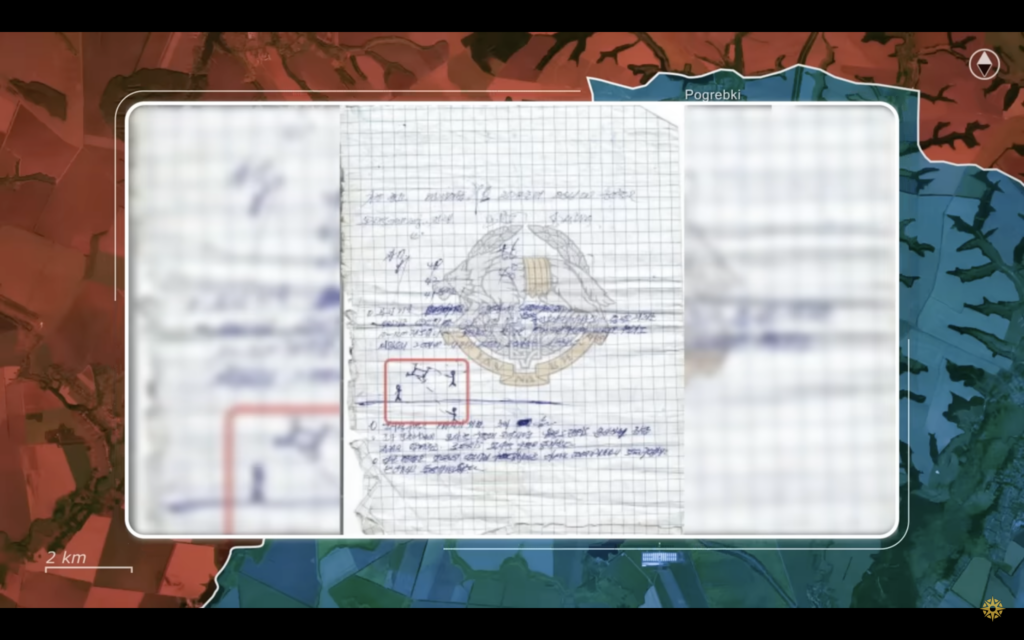
The North Korean lack of training and familiarity with modern technology and warfare leaves them highly vulnerable to precision strikes by Ukrainian forces. Unaware that their movements toward the forests were being monitored by drones, the North Koreans failed to conceal their approach effectively.
Ukrainian drone operators quickly identified their positions upon their arrival in the forests and relayed the coordinates to artillery units. This enabled Ukrainian forces to deliver devastating strikes using artillery and cluster munitions against the concentrated North Korean troops, exploiting their lack of tactical awareness.
The remaining survivors are subsequently hunted down and destroyed by newly arrived Ukrainian drone operators, who found it easier to eliminate North Korean soldiers than their previous training targets, due to North Koreans being bunched up.
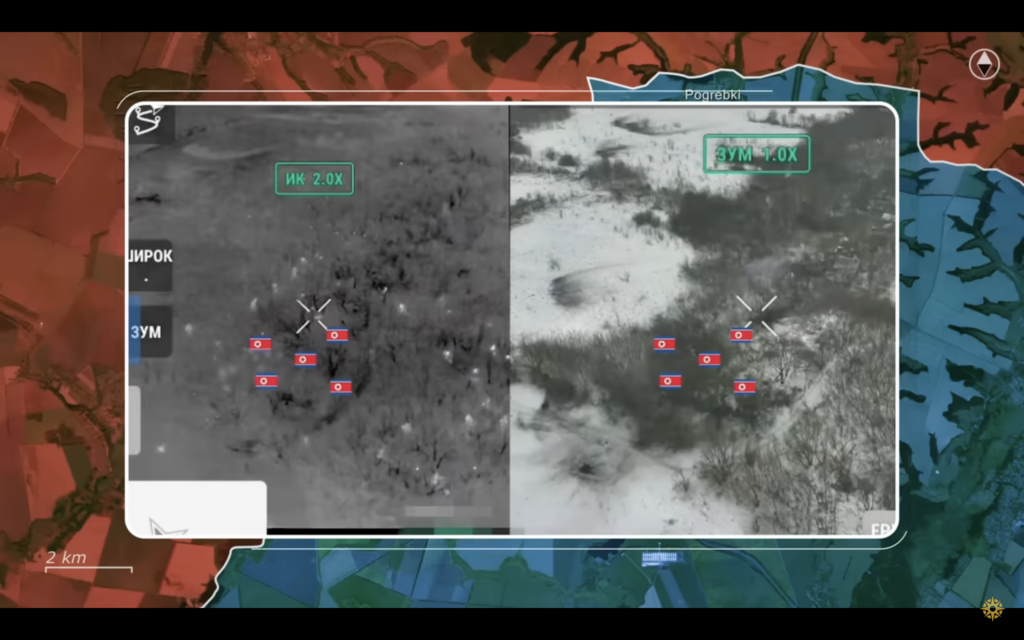
Overall, the Russian generals deployed North Korean forces in yet another assault where their lack of training became a significant advantage for the Ukrainian defenders. The Ukrainians successfully detected and eliminated large concentrations of North Korean soldiers, exposing the vulnerabilities of poorly coordinated tactics.
This assault once again highlighted the impracticality of the North Koreans’ improvised methods against drones and artillery. Despite repeated failures, North Korean commanders remain oblivious to the primary cause of their heavy losses—the tendency to cluster their troops in large groups. This approach continues to make them easy targets for Ukrainian precision strikes, resulting in unsustainable casualties that are likely to persist unless their tactics are fundamentally restructured.
In our regular frontline report, we pair up with the military blogger Reporting from Ukraine to keep you informed about what is happening on the battlefield in the Russo-Ukrainian war.








